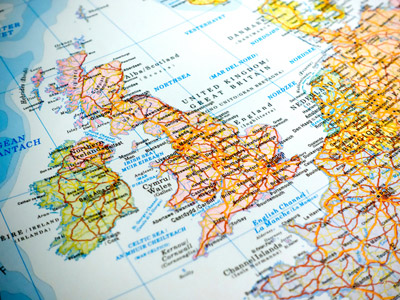
Atlas Map Skills
This GCSE Geography quiz tests you on atlas map skills. You are required to develop and demonstrate a range of geographical skills, including cartographic (map related) skills, which will be assessed in any written exams you take. Ordnance Survey (OS) maps or other map extracts may be used but whichever you are given, the principles of what to do are the same. In this quiz, you will find questions about scales, coordinates, map references and other numbers that you may find on maps in atlases.
Atlases contain a huge amount of geographical information. Old atlases are very good stores of information from the past which allows geographers to see quickly how country names or boundaries have changed, how urban areas have developed and changes in land use over many years.
The first place you would look for information in an atlas is the contents, which give you a general idea of what information is in there. Using the index gives you more helpful information, including the page numbers grid references for the features you are seeking. These grid references are different to the ones on OS maps and usually consist of a letter and a number, or a capital letter and a small letter, but the result is the same - a square on the page where your information is to be found.
Atlases usually contain more precise information about the location of a geographical feature like a mountain summit or centre of a city - the latitude and longitude. The figures for the longitude are marked along the bottom and the top of most atlas maps and also in certain places on the map too. They are sometimes referred to as the eastings as they increase as you travel east. The lines of longitude are marked vertically on the map.
The latitude figures are marked at the sides of the map and referred to as northings since (in the northern hemisphere anyway) they increase as you move in a northerly direction. When giving the location of a place using latitude and longitude, both numbers are required. In order that everyone knows which number is which, longitude (the eastings) is always given first and latitude (northings) second. Usually, the figure has one of the cardinal points of the compass (N,S,E,W) added as well. We say that the latitude and longitude are the coordinates of a place, so it's just like in maths lessons when you give the coordinates of a point on a graph.
Ready for more?
not all...
quizzers. Try to win a coveted spot on our Hall of Fame Page.

















